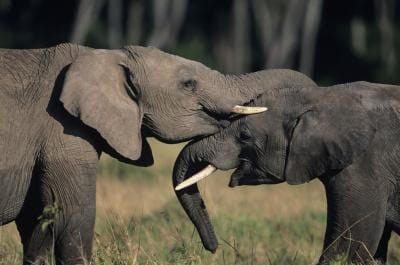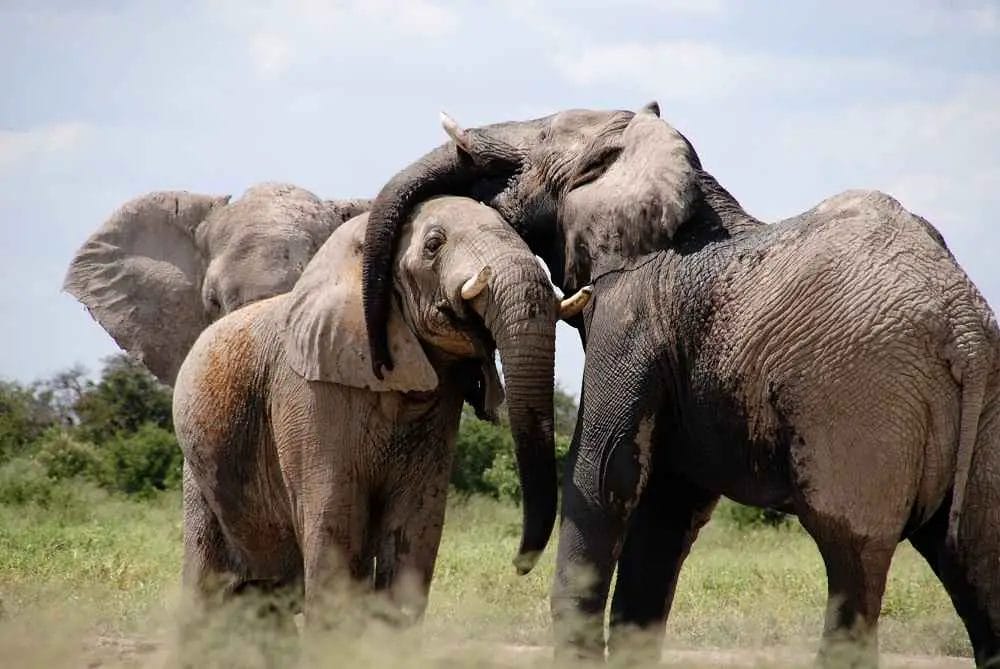Yes, elephants are capable of experiencing a wide range of emotions, including joy, anger, grief, and love. Studies have shown that elephants form close bonds with their family and friends, grieve the loss of loved ones, and even exhibit signs of post-traumatic stress disorder. They also have strong memories and can remember past events and individuals, which suggests they have a rich emotional life.

Evidence of Emotions in Elephants
Studies on elephant behavior and psychiatry have provided a wealth of evidence for the emotional capabilities of these animals. For example, research has shown that elephants form close bonds with their family and friends and grieve the loss of loved ones.
Elephants in the wild have been observed to display behaviors that are consistent with signs of post-traumatic stress disorder (PTSD).
One study conducted in Amboseli National Park in Kenya observed a group of elephants following the death of a matriarch.
The elephants were observed to display behaviors consistent with mourning, such as staying close to the deceased individual, touching and smelling the body, and vocalizing in a way that was different from their usual calls.
Similar behaviors have been observed in elephants following the death of other family members and friends.
Other research has also shown that elephants are capable of experiencing positive emotions such as joy.
For example, elephants have been observed playfully chasing each other, trumpeting and spraying dirt in the air, and swaying their heads and trunks in a playful manner. These behaviors are thought to be indicative of joy and playfulness.
Complex Social Relationships and Emotional Bonds
Elephants are highly social animals, and their relationships with family and friends play a crucial role in their emotional lives. Elephants live in complex social structures, typically organized around a matriarchal family unit.
These family units can include multiple generations of females and their offspring, as well as a few males who associate with the group.
Elephants communicate with one another using a variety of vocalizations, including trumpets, rumbles, and low-frequency calls that can travel over long distances. They also use physical contact, such as touching trunks, to communicate and maintain relationships.
Elephants are known to form strong emotional bonds with their family members and friends, and these bonds can last a lifetime. For example, elephants have been observed remaining with a deceased family member for several days, refusing to leave their side and showing signs of grief.
In addition to the strong bonds they form with their family and friends, elephants also have a strong sense of empathy and have been observed to come to the aid of others in distress. This further highlights the complexity of their emotional lives and social relationships.

Memory and Emotion
Elephants have exceptional memories and are known to remember past events and individuals for many years.
For example, elephants have been observed to recognize the faces of other elephants they have not seen for decades and to respond differently to familiar individuals than to strangers.
This strong memory may be related to their emotional lives, as it allows elephants to remember past experiences and individuals that were important to them.
This in turn, allows them to respond appropriately to familiar individuals and situations, which is an important aspect of their emotional lives.
The strong memories of elephants also allows them to recognize and avoid threats, such as poachers, and to locate food sources over long periods of time.
Studies have also shown that elephants can remember the locations of waterholes during drought periods, and they can remember the locations of salt licks.
This ability to remember past events and individuals is thought to be a key aspect of their emotional lives, and it is likely that their memories play a crucial role in their ability to
form and maintain relationships, grieve the loss of loved ones, and respond appropriately to familiar and unfamiliar situations.

Conclusion
The emotional lives of elephants are complex and rich, and recent research has provided a wealth of evidence for their ability to experience a wide range of emotions, including joy, anger, grief, and love.
Their strong social bonds and exceptional memories are key aspects of their emotional lives, and play a crucial role in their ability to navigate their environment and interact with others.
Understanding the emotions of elephants is important not just for scientific understanding, but also for conservation and ethical treatment of these magnificent animals.
